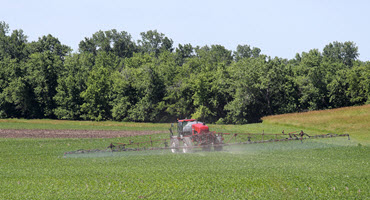Training courses will be held in over 10 states
By Diego Flammini
News Reporter
Farms.com
A herbicide manufacturer is offering free training sessions to farmers to ensure they have the proper certification necessary to apply dicamba this year.
Beginning Feb. 29 and running until at least March 30, Monsanto will host hundreds of 90-minute in-person training sessions in more than 10 states.
The meetings will focus on label compliance, application requirements, record keeping, understanding of sensitive crops, window of application, and understanding of environmental conditions.
Under the new federal Restricted Use Pesticide label, all applicators must complete training prior to using low-volatility dicamba formulations.

And if farmers thinks they may apply a dicamba herbicide, they should attend one of these sessions, said Ryan Rubischko, Monsanto’s dicamba portfolio lead.
“If you are going to apply a dicamba product this (year), you should take advantage of these sessions before the growing season begins,” he told Farms.com today.
The Monsanto-led training isn’t specific to its own products.
The sessions will also cover dicamba products from DuPont and BASF, which allows farmers to take their time deciding which herbicide to use this season.
“If a farmer hasn’t chosen what brand of dicamba product they’re going to use this year, attending a Monsanto registrant training session would cover them regardless of what product they ultimately choose,” Rubischko said.
Some states, however, require that farmers attend state-led training.
Those states are Alabama, Georgia, Indiana, Missouri, Mississippi, North Carolina and Tennessee.
A full schedule of Monsanto training sessions and information can be found on the Roundup Ready Xtend Crop System website.